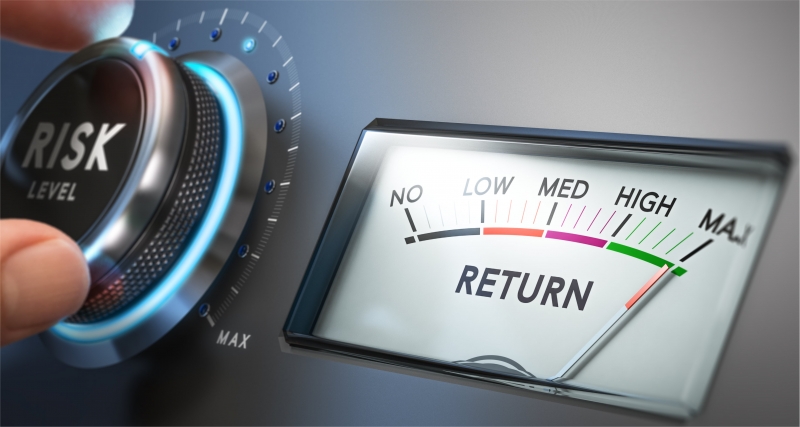How much loss can you afford to take? What kind of risks keep you awake at night? How much risk are you willing to take on? Finding answers to the above questions is part of the process we refer to as determining your risk tolerance level.
The willingness to assume risk and also potential for higher gains differ from person to person. Risk tolerance is influenced by a combination of factors, some of which are listed below.
I. Personal Circumstances and Nature
Personal factors such as your income level, sources of income, age, marital status etc. have a bearing on your risk tolerance level. While there are no universal rules on this, someone who has multiple sources of income has more risk capacity than one who has less. It is usually assumed that a 22 year old, starting to save for retirement has more room to invest in more risky assets than someone who is 50. This is because younger people have a long time to wait till stock markets or real estate prices recover without need to sell out.
What would you advise someone who is the sole breadwinner of the family to invest in? If the investments fail, a whole family may be affected whereas a single person could manage for a longer period. If the consequences of a loss are dire or will affect a larger number of people, you should take less risk. Having said this, we find some high-income earners still very risk averse. Some people cannot just live with the possibility of loss even if the loss is temporary and will reverse.
II. Investment Objective
Someone who has been laid off and given package, may be not have another job readily available and so when investing, they may take low risk investment because they need predictable income from their investment.
If you want to invest to buy a house in ten years’ time and your income is low, you might want to take on more risk to grow the funds enough to buy the house. In this case, investors may invest in stocks consistently over the period and the investment gains can be significant to enable them meet their growth objectives.
III. Time Horizon
When you need to invest for a period less than 5-10 years, then it is advisable to take on moderate to low risk like government treasuries and bonds or mutual funds that hold government paper and other fixed income assets. Otherwise, you will be exposed to liquidity risk such that when you want to cash out and there are less buyers, you will be forced to reduce the price so low before someone else will buy you out.
I heard of stories where people went to make placements for 3 years maturity because the interest rate was 27% per annum. Nine months later, they came wanting to cash out and found they could not, and even when some could redeem their investments, they suffered 10% penalty. Don’t chase high returns (which also imply higher risk) if you will or might need the money anytime soon.
IV. Knowledge and Experience of the investor
Experienced investors usually take on greater risks than new investors. Good investors have access to quality research and rely on years of experience to evaluate the risks and can take other measures to protect themselves than new investors can.
You need knowledge about the market you will be investing in. In Ghana, we do not have well developed financial risk management products like swaps, options, futures etc. which one could use as a hedge against potential investment losses. In advanced markets these exist and so they may be more bullish on stocks because they can take counter positions as a hedge.
V. Size of your capital and the market you operate in
Take for instance, Axis Pension Plan or any other investor with GHS100,000,000 can diversify their investments and so can have some amount in equities and real estate which are relatively riskier. But if you are a small investor with GHS50,000 or less, you may not be able to diversify as wide as the GHS100m investor. So, a mutual fund is a low risk investment for you to start with while you buy time to learn the behaviors that are necessary to succeed as an investor.
There are online questionnaires you can take to assess your risk tolerance level but use it only when you know what you are doing otherwise consult an investment advisor or pension advisor to assist you when doing this for the first time
---
Axis Pension Trust partners workers throughout their retirement planning journey to ensure they are on track to achieve a dignified retirement. For more information on our services or general enquiries, send an email to This email address is being protected from spambots. You need JavaScript enabled to view it. or call 030 273 8555.











